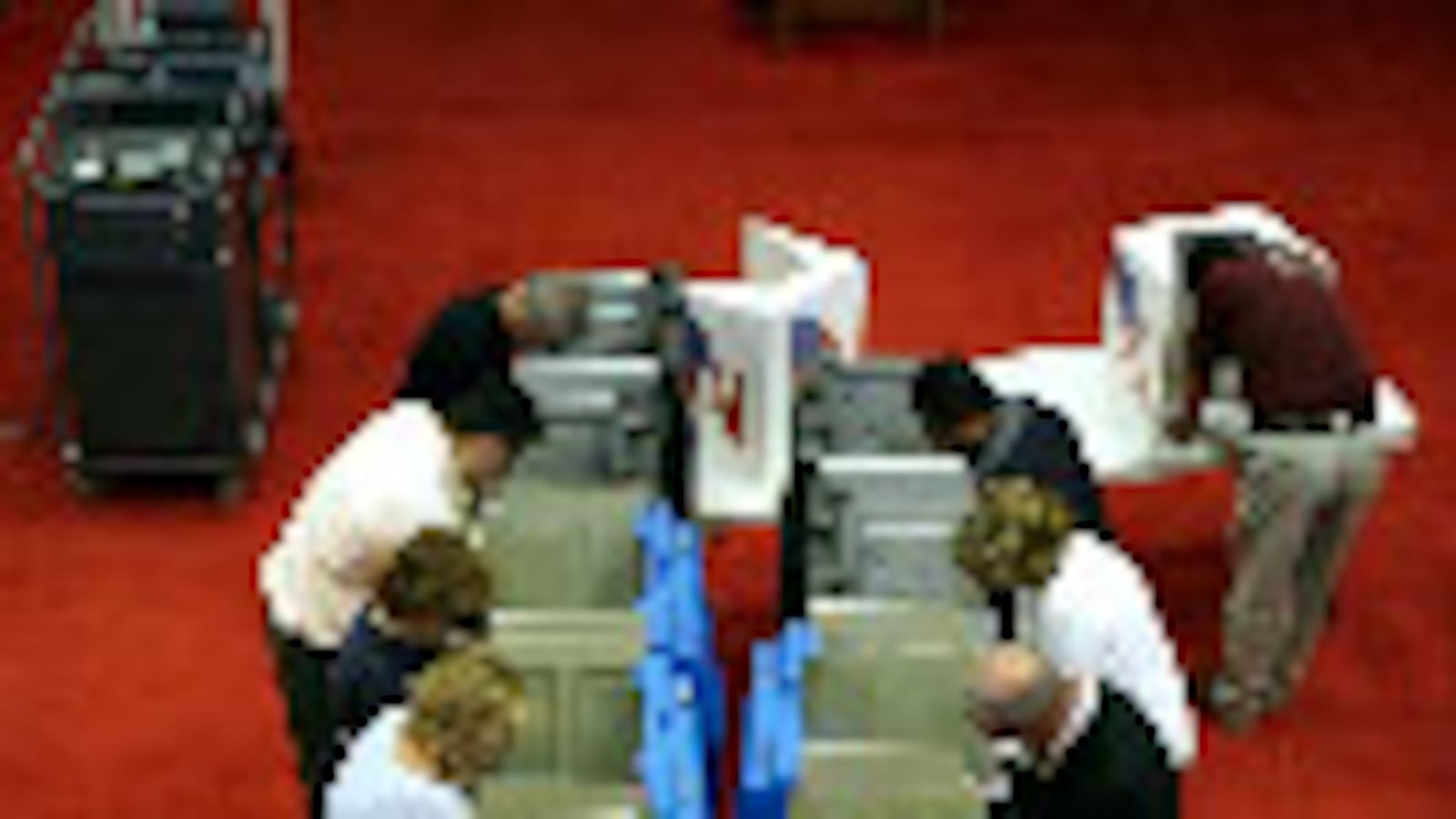
The US presidential election campaign, finally ending (the 2012 campaign will begin on Thursday and will probably cost $2 billion), has been so entangled with economic, racial, and ethical questions, it has obscured the most stark ideological differences between candidates at least since Reagan and Carter in 1980.
Senator Obama, who has the most liberal voting record of any current US senator, is well to the left, according to all polls, of most Americans. He is surging toward the unusual feat of being elected even though most of his countrymen are ideologically closer to his chief opponent.
Voters have been heavily distracted by the crisis of the financial and residential mortgage industries. Obama has displayed an almost sphinx-like discretion on that subject, and has relied successfully on Senator McCain’s daily kaleidoscope of hip-shooting responses and King Lear-like promises of vengeance on the greedy financiers and sloppy regulators. Obama has also relied on the formidable resources of diversionary accusation of both parties in Congress, to fill the air and the media with recriminations against the Bush administration and the economic royalists of Wall Street, and to whitewash the starring role of the Congress itself in this immense financial fiasco.
It was appropriate that Alan Greenspan’s extended walk on water should end, given his enthusiastic complicity in the policy of facilitating unaffordable home ownership. Yet it was also annoying to see a man of Greenspan’s distinction and prior success being reviled by a posturing charlatan like Barney Frank. Congressman Frank was one of the chief authors of the imposition of defined official policy on public mortgage companies and banks answerable to shareholders and bondholders. It was a political free lunch, as Congress forced the private sector into commercially imprudent actions, at no apparent cost to the government. Unfortunately, Greenspan did nothing in his appearance at the Congress to interdict the escape of Frank, Henry Waxman, Christopher Dodd, and others from their just deserts as co-authors of the debacle.
In this presidential campaign, there has not, as far as I have observed, been a single plausible explanation of what has happened to the financial system. The Congress required the mortgage giants Freddie Mac and Fannie Mae to put 52 percent of their mortgages on the homes of low income, higher risk, mortgagees. It did the same, though not to the same extent, with the commercial banking system. Greenspan cooperated with the Congress by holding the prime rate at 1 percent for almost a year, facilitating the issuance of trillions of dollars of low-yield, high-risk mortgages. Estimates of the total amount issued range from $3 trillion to more than $40 trillion, with the likeliest figure between $12 trillion and $15 trillion, about half abroad, and with about half of the American sales to Fannie Mae and Freddie Mac.
The financial industry bundled these together in collateralized debt obligations, where investors could buy in at different rates and risk levels, and the CDOs were backed by credit default swaps, insurance policies that gave the CDOs a semblance of reliability to the buyers.
Investment banks were permitted to borrow up to 30 times their asset bases, three times the leverage permitted to lending banks. Federal Reserve rules require that assets be constantly revalued to their fluctuating market value. It was a house of cards on an open terrace on a summer day. Early signs of a slight business downturn shook loose some of the most vulnerable mortgages, and the effects rolled through to the insurance companies.
Banks marked down their asset values, and to avoid being afoul of Federal Reserve-imposed ratios, had to seek more capital at declining issue prices, diluting existing shareholders. Market shapers and astute analysts short-sold the CDOs and bank shares, (i.e. sold them without first buying them, forcing down the market price, and then covering their sales by buying at a lower price). The process broadened and accelerated, as this kind of crash always does, and the secretary of the treasury, Henry Paulson, and the Federal Reserve chairman, Ben Bernanke, scrambled around like one-armed paper-hangers, saving some companies (Bear Stearns), and not others (Lehman).
Very late, they improvised an impractical plan for buying up to $700 billion of the defaulted real estate-related debt, but the CDOs are not easily divided and the federal government had no capability for negotiating such transactions. It was agreed that the government would, as it did in the 1930s, buy preferred shares in the encumbered institutions from their treasuries at discounted prices, and let the banks work it out with their clients and debtors.
The foregoing makes no pretense to economic sophistication, but I saw no evidence that either candidate is capable of giving even this minimalist description of what has panicked the country, discomfited the whole financial world, and caused foreigners to resume the habit that began with the US rejection of the Treaty of Versailles in 1919, and blame everything bad on America. The collapse of the United States was jubilantly announced by the international left (including The New York Times), probably at least two centuries prematurely. As McCain flailed wildly, Obama sagely allowed the crisis to reflect badly on Republicans generally, though the Clinton administration was certainly not blameless.
Obama is essentially offering the white population (74 percent of the country), in exchange for his residency in the White House, an end to the white racial guilt complex over 145 years of quasi-segregation of African-Americans, following what Lincoln called “the bondman’s 250 years of unrequited toil.” And as a bonus, this will also be the end of the hackneyed and checkered spokesmanship for the black community of scoundrels like Jesse Jackson, Al Sharpton, Charlie Rangel, and the Obama family’s recently discharged pastor, Jeremiah Wright.
The governing party has usually changed after two terms in the US in the last 60 years. The stylistic shortcomings of the second Bush administration, McCain’s blunderbuss campaign, the financial crisis, aggravated by a normal cyclical economic slowdown, have all reinforced that likelihood. Under the Mephistophelean influence of the most biased media coverage of a US election at least since Barry Goldwater in 1964, Obama’s peculiar associations have been downplayed and McCain has been portrayed as serving up a smear job for raising them at all.
Twenty years of listening, each Sunday, to the demented ravings of Father Jeremiah; the relationship with unrepentant former terrorist Bill Ayers, as they squandered $100 million of the late Walter Annenberg’s money teaching Marxism but not raising test scores in Chicago; Obama’s relations with the Association of Community Organizations for Reform Now, now being investigated for extensive voter-registration fraud in 14 states; and Obama’s provenance from the roughest, crudest, political machine in the country, the Democratic Party that has ruled Chicago and its suburbs for 80 years; all have been ignored or glossed over, and have received less investigative attention than Joe the Plumber’s tax returns or Sarah Palin’s wardrobe.
In policy terms, McCain would lower taxes and spending and retain individual choice in medical care. Obama would “cut the taxes of 95 percent of Americans,” by which he means that the 40 percent of Americans who do not pay income taxes would receive “refundable tax credits” from the 60 percent who do, most of whom would receive tax increases. He has tried to sugar the pill of simply taking money from people who have earned it and giving it to people who haven’t by clothing it in the jolly and progressive phrase “spreading the wealth around.” A tax increase at the start of a recession is playing Russian roulette with all chambers loaded.
His universal health care proposal would make a majority of Americans compulsory members of a federal health plan, run by another immense bureaucracy. McCain would give everyone who needed it a $2,500 draw-down right to organize their own health insurance, at comparatively modest cost to the federal government.
Obama will promote unionization of the work force, thus advancing that retrograde and declining cause of the departure of much of American manufacturing to cheaper labor countries in the first place. If Obama takes his economic advice from Warren Buffett and Paul Volcker, catastrophe will be avoided. If he actually carries out his program, he will be the worst president since Warren Harding and the most (inadvertently) destructive since James Buchanan brought on the Civil War.
It has been such a complicated election, a center-right country is running some risk of a quirky and ill-starred lurch to the left under its first non-white president. Whatever else it may have become, the United States is a land of surprises.
Thanks to those who have responded to my articles; those who have commented on my legal travails should know that I won 85 percent of the case, the rest is under appeal, and the counts are nonsense. No one should imagine that being convicted of anything in this country necessarily bears the slightest resemblance to the law and the facts. My book on Franklin D. Roosevelt was published five years ago and I was not trying to tout it, and anyone even casually interested in his era should be aware that the un-rigorous debunking of the New Deal has been reaching deafening volume. Tim Powell, an otherwise serious economic historian, is the most extreme advocate of this view, but the very capable Amity Schlaes has taken up a similar line more recently and has achieved great publicity for her efforts. It is hard to open a serious newspaper without seeing references to this view, so those who profess not to have noticed must have hibernated early and lengthily.





